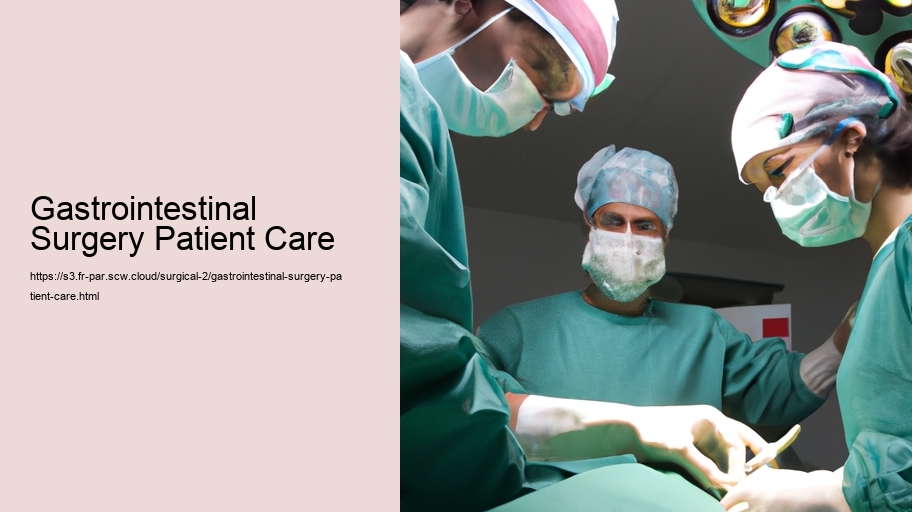Gastrointestinal surgery, a specialized branch of medicine, encompasses a wide range of procedures targeting the digestive system, which includes the esophagus, stomach, small intestine, large intestine, liver, pancreas, gallbladder, and rectum. The care of patients undergoing such surgeries is a multifaceted endeavor, requiring diligent preoperative preparation, meticulous surgical technique, and vigilant postoperative management to ensure the best possible outcomes. This essay aims to elucidate the various aspects of care that patients may encounter when undergoing gastrointestinal surgery.
Preoperative care is the initial phase in the patient's surgical journey. During this stage, thorough assessments are carried out to determine the patient's fitness for surgery and to plan the best surgical approach. It involves detailed medical history taking, physical examinations, and diagnostic tests such as blood work, imaging studies, and possibly endoscopic procedures. The goal is to identify any potential risks and to optimize the patient's health status prior to surgery. Patients are often advised on lifestyle modifications such as smoking cessation, alcohol abstinence, and nutritional optimization, which can significantly affect surgical outcomes.
Patient education is another crucial component of preoperative care. Patients should be well-informed about the nature of their condition, the specifics of the proposed surgical procedure, the expected benefits, the potential risks and complications, and the recovery process. This knowledge empowers patients to make informed decisions about their healthcare and prepares them mentally and emotionally for the road ahead.
The operative phase is where the actual surgery takes place. Surgeons, anesthesiologists, and surgical nurses collaborate to ensure the procedure is performed safely and effectively. Advances in surgical techniques, such as minimally invasive laparoscopic and robotic surgeries, have enhanced the ability to perform complex procedures with increased precision and reduced trauma to the patient, often resulting in shorter hospital stays and faster recoveries.
Postoperative care begins immediately after surgery and continues until the patient has recovered fully. This phase is critical for monitoring the patient for any signs of complications, managing pain, preventing infections, and promoting healing. The multidisciplinary team, including surgeons, nurses, anesthetists, physiotherapists, dietitians, and potentially other specialists, work together to address the unique needs of each patient. For example, early mobilization and respiratory exercises are encouraged to prevent complications such as deep vein thrombosis and pneumonia.
Nutritional support is pivotal in the postoperative period. Since the digestive system is often directly impacted by the surgery, reestablishing proper nutrition can be challenging. Dietitians play a vital role in creating tailored feeding plans that may start with clear liquids and gradually progress to more substantial foods as the patient's condition allows.
The psychological aspect of patient care should not be overlooked. Surgery can be a significant source of stress and anxiety for patients. Providing emotional support, addressing concerns, and involving the patient's family or support system can enhance the healing process and improve the overall experience.
Discharge planning is an extension of postoperative care that commences almost immediately after surgery. The goal is to ensure a smooth transition from the hospital to the home or another appropriate setting. This involves educating the patient and their caregivers about wound care, activity restrictions, medication management, signs of complications, and follow-up appointments. A well-planned discharge can prevent readmissions and promote a more comfortable and effective recovery.
In conclusion, caring for patients undergoing gastrointestinal surgery is a comprehensive process that spans from the initial evaluation to the return to normal life. Each phase of care is crucial and requires a skilled and compassionate healthcare team dedicated to providing personalized and evidence-based care. By focusing on the physical, nutritional, and psychological needs of patients, healthcare providers can improve surgical outcomes and enhance the quality of life for those undergoing these complex procedures.
